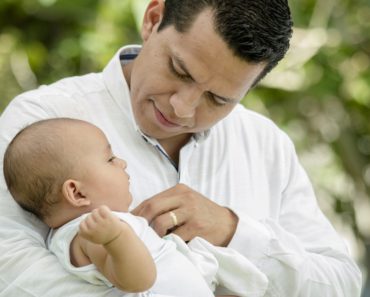Contents
- 1 Choosing the Best Couples Therapy Technique for Stepparent Relationships
- 2 The Importance of Couples Therapy for Stepparents
- 3 Evidenced-based Couples Therapy Techniques for Stepparents
- 4 Finding the Right Couples Therapy Technique for Your Stepparent Relationship
- 4.1 What are the specific challenges that stepparents often face in their relationships, and how can couples therapy help address these issues?
- 4.2 How do different couples therapy techniques, such as Emotionally Focused Therapy (EFT) or Imago Relationship Therapy, specifically cater to the unique dynamics of a stepparent relationship?
- 4.3 Are there any evidence-based couples therapy techniques that have shown particular effectiveness in improving communication and resolving conflicts among stepparents and their partners?
- 4.4 Related Posts
In this article, we dive into the world of couples therapy and explore which technique might be best suited for your unique bond. Join us in discovering the essential tools to strengthen your stepfamily dynamic and foster a harmonious coexistence.
Choosing the Best Couples Therapy Technique for Stepparent Relationships
Choosing the Best Couples Therapy Technique for Stepparent Relationships
When it comes to addressing the unique challenges faced by stepparents, choosing the right couples therapy technique is paramount. Stepparent relationships often come with added complexities due to the blending of families and differing parental roles. This necessitates a tailored approach that takes into account the specific dynamics at play.
One effective technique that can be employed is Emotionally Focused Couple Therapy (EFT). EFT focuses on helping couples identify and understand their underlying emotions and attachment needs. By creating a secure emotional bond between partners, EFT can help stepparents navigate issues such as loyalty conflicts, unresolved grief, or feelings of rejection.
Another approach that may be beneficial is Solution-Focused Brief Therapy (SFBT). SFBT is a goal-oriented technique that emphasizes finding solutions rather than dwelling on problems. This approach can be particularly helpful for stepparents who are struggling with communication issues, discipline strategies, or establishing clear boundaries within the blended family.
For stepparents dealing with significant conflict, Collaborative Couple Therapy (CCT) might be a suitable choice. CCT encourages both partners to actively participate in resolving conflicts through open dialogue and finding mutually agreeable solutions. This technique can assist stepparents in addressing power struggles, co-parenting challenges, or unresolved issues from previous relationships.
In addition to these techniques, it is crucial for therapists to foster a supportive and non-judgmental environment for stepparents. They should be culturally sensitive and understand the unique stressors that stepparents face. Flexibility is key, as therapists may need to adapt their strategies based on the specific circumstances of each family.
Ultimately, selecting the best couples therapy technique for stepparent relationships depends on factors such as the level of conflict, the specific challenges being faced, and the preferences of the individuals involved. By tailoring the approach to suit the needs of the family, therapists can help stepparents build stronger and more fulfilling relationships within their blended families.
The Importance of Couples Therapy for Stepparents
Couples therapy can provide a safe space for stepparents to address the unique challenges they face within their blended families.
Through therapy, they can work on improving communication, resolving conflicts, and building trust between them and their partner’s children.
Therapy can help stepparents navigate complex dynamics and establish boundaries. It offers a supportive environment to discuss expectations, roles, and responsibilities within the family, fostering understanding and cooperation.
Couples therapy can enhance the bond between stepparents and stepchildren. By addressing underlying issues, therapy can improve the relationship and create a sense of unity within the blended family, promoting acceptance and emotional connection.
Evidenced-based Couples Therapy Techniques for Stepparents
Emotionally Focused Therapy (EFT) focuses on identifying and changing negative patterns of interaction in relationships. It helps stepparents and biological parents understand and express their emotions, fostering empathy and connection within the family.
Imago Relationship Therapy (IRT) emphasizes understanding the origins of conflict and working towards healing and transformation. It explores each partner’s childhood experiences and how they impact their present relationship dynamics, helping stepparents and their partners develop a deeper understanding of each other.
Solution-Focused Brief Therapy (SFBT) focuses on creating solutions rather than analyzing problems. It helps stepparents identify their strengths and develop practical strategies to address specific challenges. SFBT is particularly useful for stepparents seeking short-term, goal-oriented therapy.
Finding the Right Couples Therapy Technique for Your Stepparent Relationship
we will discuss factors to consider when choosing a couples therapy technique for your stepparent relationship.
Assess your unique needs and goals. Consider the specific challenges you face and what you hope to achieve through therapy. Some techniques may be more suitable for communication improvement, while others may focus on healing past wounds.
Research and consult professionals with experience in stepparent counseling. Seek recommendations from trusted sources and ask therapists about their expertise in working with blended families.
Take your partner’s preferences into account. Discuss the different therapy techniques together and find a mutual agreement on which approach resonates most with both of you.
Remember that therapy is a process. Be open to trying different techniques, and don’t be discouraged if immediate results aren’t seen. Building a strong stepparent relationship takes time, effort, and commitment.
What are the specific challenges that stepparents often face in their relationships, and how can couples therapy help address these issues?
Stepparents face various unique challenges in their relationships. These challenges can include navigating the dynamics between the stepparent and stepchildren, establishing authority and boundaries, dealing with loyalty conflicts between the stepparent and biological parent, and managing different parenting styles and expectations. Additionally, emotional issues such as jealousy, resentment, and feelings of exclusion can arise for both the stepparent and stepchildren.
Couples therapy can be beneficial in addressing these challenges. During therapy, the couple can explore and understand the underlying issues that contribute to the difficulties they face as a stepparent. The therapist can help them develop strategies and communication skills to enhance their relationship and improve their ability to navigate complex family dynamics.
Therapy can provide a safe space for the couple to express their concerns, validate their emotions, and develop effective coping mechanisms. It can also help with conflict resolution and problem-solving skills, enabling the couple to work together as a team to address any conflicts that arise within the blended family.
In addition, couples therapy can facilitate open and honest communication between the stepparent and biological parent, fostering understanding and empathy. This can lead to the development of a united front when it comes to parenting decisions and discipline, which is crucial for the children’s well-being and the overall harmony of the family.
Ultimately, couples therapy can assist stepparents in building strong and healthy relationships with their stepchildren and establishing a solid foundation for a successful blended family.
How do different couples therapy techniques, such as Emotionally Focused Therapy (EFT) or Imago Relationship Therapy, specifically cater to the unique dynamics of a stepparent relationship?
Emotionally Focused Therapy (EFT) and Imago Relationship Therapy can both be effective in addressing the unique dynamics of a stepparent relationship.
EFT focuses on helping couples develop secure attachment bonds by recognizing and addressing underlying emotional patterns. In the context of a stepparent relationship, EFT can help the couple understand and navigate the specific challenges that arise from blending families. The therapy can provide a safe space for stepparents to explore their feelings of insecurity or fear of rejection and help them communicate their needs to their partners. The therapist can also assist in strengthening the bond between the stepparent and the stepchild, promoting a sense of acceptance and emotional connection.
Imago Relationship Therapy is based on the premise that individuals are attracted to partners who unconsciously reflect both positive and negative traits of their primary caregivers. In stepfamilies, past experiences and unresolved issues can heavily impact the dynamics between the stepparent and the biological parent. Imago Therapy helps identify these patterns and assists the couple in understanding and healing any past wounds. By addressing the underlying issues, the therapy can create a healthier foundation for the stepparent relationship, promoting trust, understanding, and better communication.
Both therapies, EFT and Imago Relationship Therapy, can be adapted to recognize and address the specific challenges faced by stepparents. They provide a supportive environment for the couple to explore their emotions and experiences, develop stronger bonds, and create a more harmonious and fulfilling stepparent relationship.
Are there any evidence-based couples therapy techniques that have shown particular effectiveness in improving communication and resolving conflicts among stepparents and their partners?
Yes, there are several evidence-based couples therapy techniques that have shown effectiveness in improving communication and resolving conflicts among stepparents and their partners.
One such approach is Emotionally Focused Therapy (EFT), which focuses on improving emotional connection and attachment between partners. EFT has been found to be effective in helping couples understand their patterns of interaction, identify and express their emotions, and develop more secure attachment bonds.
Another effective technique is Cognitive-Behavioral Therapy (CBT), which helps stepparents and their partners identify and challenge negative thought patterns and develop more effective coping strategies. CBT can help address specific issues such as parenting conflicts, discipline strategies, and managing blended family dynamics.
Solution-Focused Brief Therapy (SFBT) is another approach that can be helpful for stepparents and their partners. This technique focuses on identifying and amplifying existing strengths and resources within the couple, rather than dwelling on problems. It encourages the couple to envision their preferred future and work towards small achievable goals.
Additionally, the Gottman Method Couples Therapy has been widely used and researched, showing effectiveness in improving communication and conflict resolution skills. This approach emphasizes enhancing friendship, managing conflict, and creating shared meaning in the couple’s relationship.
It is important to note that every couple is unique, and what works for one may not work for another. Seeking the guidance of a qualified therapist who specializes in working with stepparents and blended families can provide tailored strategies and support for addressing the specific challenges faced in these relationships.
In conclusion, when navigating the complexities of step-parenting, it is crucial to prioritize the well-being of your blended family and seek professional help if needed. Couples therapy can be an effective tool in addressing the unique challenges faced by step-couples, but choosing the right technique is key. Whether you opt for Emotionally Focused Therapy, Imago Relationship Therapy, or Solution-Focused Brief Therapy, remember that every relationship is unique and what works for one couple may not work for another. It is important to find a therapist who specializes in step-family dynamics and tailor the treatment to your specific needs. By investing time and effort into your relationship through therapy, you can strengthen your bond, foster a healthy environment for your children, and create a fulfilling step-parenting experience.







